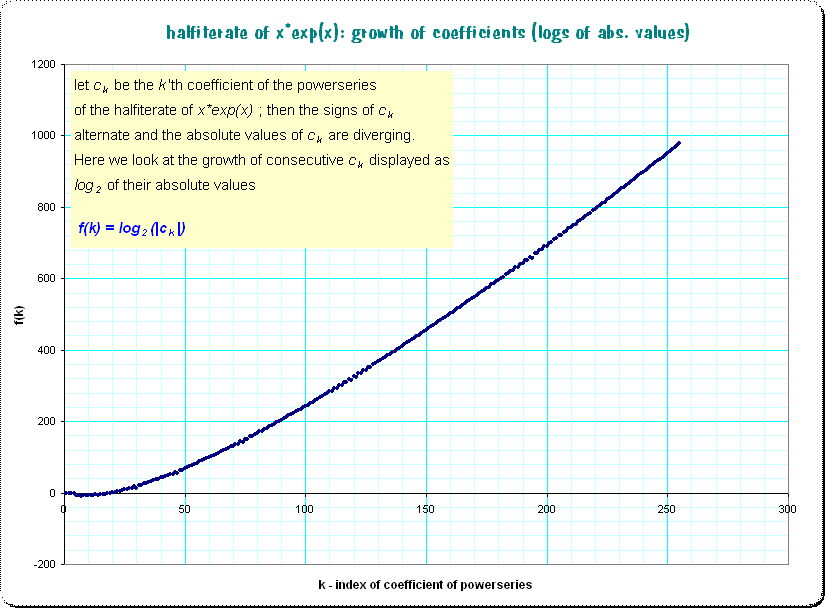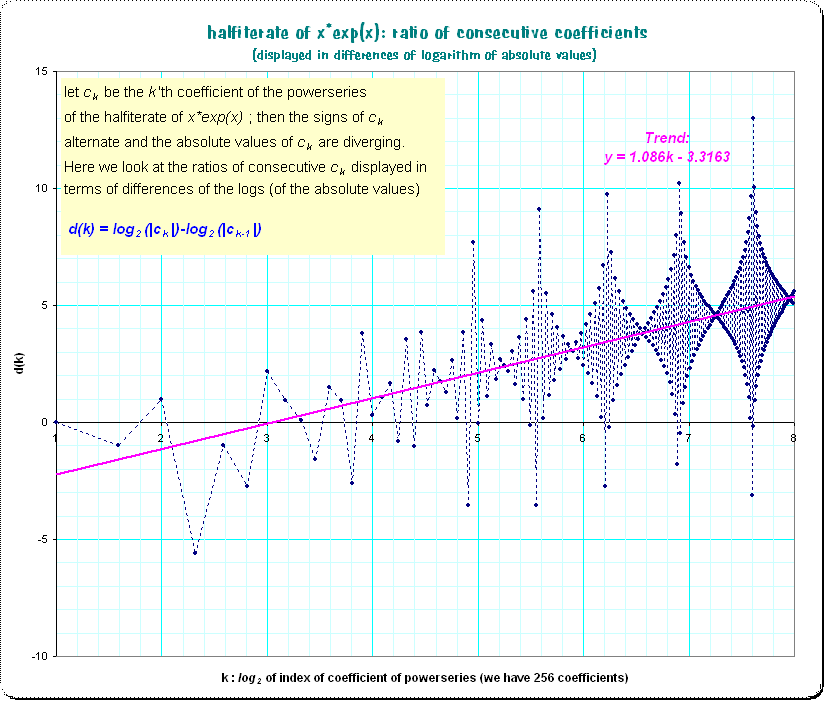The equation $f(f(x))=xe^x=x+x^2+\frac{x^3}{2}+\frac{x^4}{6}+\dots$ has a unique formal powerseries solution. Is its convergence radius 0 as was shown by Baker for the equation $f(f(x))=e^x-1$? Or more generally: Let $F(x)=xe^x$ does the unique formal powerseries solution of $F(f_t(x))=f_t(F(x))$ with $f_t(x)=x+t x^2 +\dots$ have convergence radius 0 for all non-integer numbers $t$?
1 Answer
I don't have an analytically founded answer, but like in the thread on the iteration of sin(x) Does the formal power series solution to $f(f(x))= \sin( x) $ converge? I've plotted the characteristics of the coefficients of the powerseries for the half-iterate of x*exp(x).
In the first plot we see, that the log of the absolute values of the coefficients grow nearly linearly with their index, so this is a hypergeometric series. See the picture for the growthrate:
Also look at the differences of that consecutive values;
this is even more suggestive because of the typical pattern which suggests, that the differences of the logs grow asymptotic linearly with the logs of the index, which is just another expression for hypergeometric growthrate. So the convergence-radius for the half-iterate seems to be zero as is for the half-iterate of $ exp(x)-1 $ .


